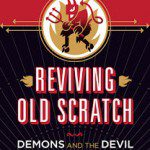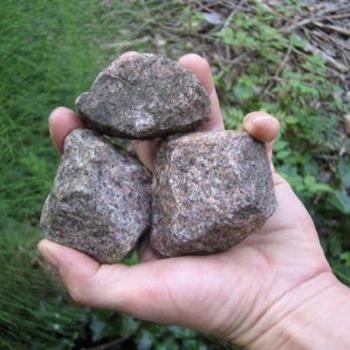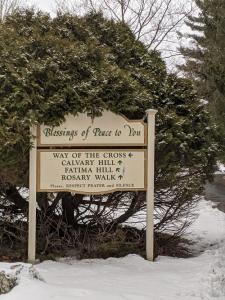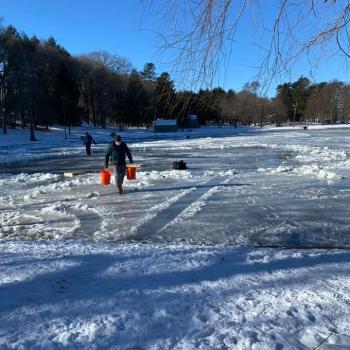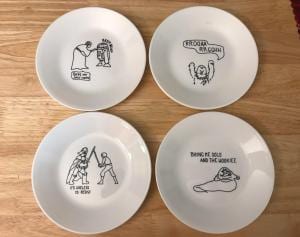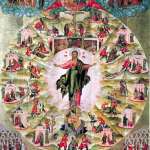About a year ago, as I was growing more and more disillusioned with the reflection of Christianity in American culture, I discovered a podcast called Drunk Ex-Pastors.
Christian Kingery and Jason Stellman both grew out of that American version of Christianity, which is, at its best, simple and shallow; at its worst, toxic. Stellman eventually became a Catholic, and Kingery lost his faith, but their friendship remains and the podcast, which tackles issues like doctrine, Hell, and, worse, politics, reaches a state of ecumenism that inter-denominational Christians reach for but almost never attain.
The beauty of their podcast is that foundation–the fact that these two friends, however much they disagree, can still tolerate each other. Over drinks, at least. I doubt Sober Ex-Pastors would have as big a following.
I interviewed Jason Stellman, half of Drunk Ex-Pastors, for Sick Pilgrim.
DXP and Sick Pilgrim: a match made in…well, you decide. — Matt Lafleur
***
SP: Congratulations on making more than 100 episodes. In the world of podcasts, remaining popular after 100 episodes, with each episode averaging over an hour, is a rare feat. Why do you think Drunk Ex-Pastors has such a wide array of listeners, across geographic, religious, and even political differences?
JS: I think part of the appeal is that one of us is a believer and the other isn’t. So when we approach issues like faith, science, evidence, or epistemology, we come from different perspectives. Plus, we’ve been friends for more than 25 years, and there is a rapport there that you can’t just fake or manufacture. We’re also something of a guilty pleasure for lots evangelicals (due mainly to our both having pastored in that context), and I think that may be in part due to our addressing topics that just aren’t safe to talk about elsewhere.
SP: Your own faith journey has left you confused and somewhat broken-hearted. Now you’re in the Catholic Church. Since you’ve been a nomad in faith – or a sick pilgrim, if you will – do you feel at home in Catholicism, or is it only a stop on your pilgrimage?
JS: Well, I don’t really feel “at home” in the Catholic Church, but that’s more my fault than theirs. I find myself admiring the Church very much, but really living up to its ideals is another thing. So I feel more like a spectator or a fan than a real member of the club, I guess. But with all that said, I don’t see it as just another stop on some longer journey. The nice thing is that the Church is broad enough that I can continue to grow and evolve without having to find some new place to hang my hat every time I undergo some spiritual change. There’s room for me there, so I don’t plan to go anywhere.
SP: Coming from the very conservative South, I have to ask – do you ever have to hold back because of fear that you might say something that is not aligned with Catholic teaching? I’m sure you have many fundamentalist (Catholic and other) gripers. How do you respond to them?
JS: Oh, I’m sure I say the wrong thing all the time! But I’m a civilian now, not an official mascot or spokesman, so I allow myself a good measure of leeway when it comes to having differing opinions with the Church on certain matters. Plus, I’m more concerned with loving my neighbor than I am with dotting my i’s and crossing my t’s. Something tells me the Pastor of my Church would agree with me.
SP: How doing the podcast with your co-host and best friend (who is or isn’t agnostic) challenged or strengthened your faith?
JS: Well I have definitely changed more than he has, but whether that’s a good thing others can decide. I think any shifts I have undergone have been due more to the things I have been through in my own personal life since the show began back in 2014. I find myself imagining God to be more and more gracious as time goes on, which I’m sure is not unrelated to how bad I am at this whole Christianity thing. One way Christian has influenced me concerns the issue of evil and eternal torment in hell. The more he and I talk (both on and off the air), the harder it is for me to picture God withholding his saving grace from people and then waterboarding them for all eternity for their sins. He can do whatever he wants, I suppose, but I have to think he is at least as forgiving a father as I am.
SP: Is the God you pray to now the same God from your days as a Calvary Chapel pastor/missionary and as a preacher for the Presbyterian church? Do you think God was the same, only your perspective shifted, or do you think that the view of God you held in the past completely missed the mark?
JS: I’ve always sucked at prayer, whether in Calvary Chapel, the Presbyterian Church, or Rome. I suppose my failure at prayer has to do with most of what happens under that guise: being a complete joke. Like, God helped you get a parking spot close to the entrance? Yay. Meanwhile some family in Somalia got butchered, are you happy now?
I do think my view of God missed the mark back then—I saw him more as a lawgiver and judge than as a father. But then, I’m sure I have a million holes in my thinking now as well. The nice thing about not being a pastor anymore is not feeling the pressure to have everything figured out. It’s nice to just be, and do my best, and rest in the idea that God is OK with me no matter what.
SP: Most people only have people in their personal circles with similar beliefs. In what ways has your friendship with Christian been affected by your difference in theology? Is it his mission to convert you to Agnosticism and yours to make a Catholic out of him?
JS: No, neither of us is particularly interested in creating a convert to our way of thinking. I think this is because we have both been wrong so often in the past, even after having been so sure of ourselves. That experience—especially when it happens publicly like it did for me—can’t but have a profound and humbling effect. So yeah, he and I are just fine with each other as we are!
SP: Let’s get pious now. Are there any type of prayers, devotions, or spiritual exercises that you find really encourage you in your faith?
JS: No, not really. I feel like I’m barely hanging on, and when my faith gets strengthened it’s usually either by unlearning stuff I used to think or by some earthly touchstone where I find beauty or commonality with my fellow man. It could be a song or film that moves me, or just spending time with the people I love. It’s in those moments that God seems most real to me.
SP: What would you say to potential DXP listeners?
JS: I’d urge them to not look for enjoyment in the agreement with us, since there may be very little (and that’s what most of our listeners say: “I rarely agree with you guys, but I’ve listened to every episode”), but find the enjoyment in the honesty and openheartedness of what we do. We really do put ourselves out there, and I think there’s value in that. Transparency covers a multitude of sins, ironically.
SP: What does the future hold for both the podcast and for you personally?
JS: Well, the next big thing is my forthcoming book, Misfit Faith: Confessions of a Drunk Ex-Pastor, which should be out next spring from Random House’s Convergent imprint. It’s basically me chronicling some of the things I have learned over the past few years after leaving the Presbyterian Church, becoming Catholic, and realizing how shitty I am at it.
I go into topics like the fatherhood of God and its ramifications for theology and for our lives. One of the constant refrains is “If God is at least as good a father as I am to my children, then….” And that, obviously, is connected with the whole “grace perfects nature” idea, which I delve into quite a bit. While I’ve only completed the first draft, I’m pretty proud of what I have come up with so far. It’s been a long time coming and has gone through a couple different iterations, so I am really looking forward to its finally seeing the light of day.
***
Be sure to check out Drunk Ex-Pastors and follow them on the DXP Facebook page or @DrunkExPastors on Twitter.



